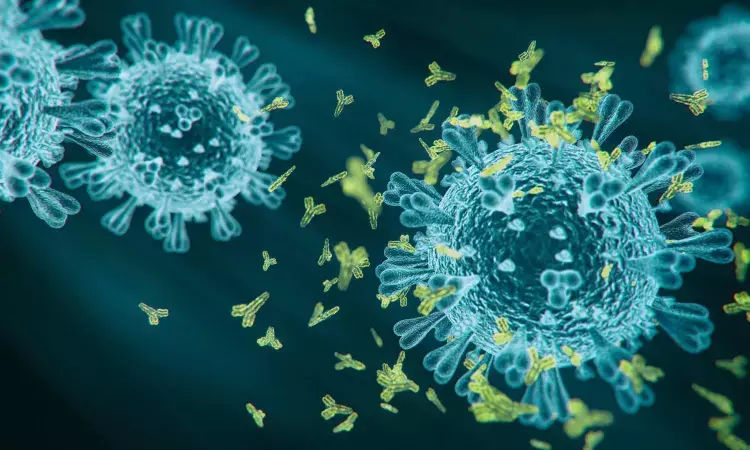- Home
- Medical news & Guidelines
- Anesthesiology
- Cardiology and CTVS
- Critical Care
- Dentistry
- Dermatology
- Diabetes and Endocrinology
- ENT
- Gastroenterology
- Medicine
- Nephrology
- Neurology
- Obstretics-Gynaecology
- Oncology
- Ophthalmology
- Orthopaedics
- Pediatrics-Neonatology
- Psychiatry
- Pulmonology
- Radiology
- Surgery
- Urology
- Laboratory Medicine
- Diet
- Nursing
- Paramedical
- Physiotherapy
- Health news
- Fact Check
- Bone Health Fact Check
- Brain Health Fact Check
- Cancer Related Fact Check
- Child Care Fact Check
- Dental and oral health fact check
- Diabetes and metabolic health fact check
- Diet and Nutrition Fact Check
- Eye and ENT Care Fact Check
- Fitness fact check
- Gut health fact check
- Heart health fact check
- Kidney health fact check
- Medical education fact check
- Men's health fact check
- Respiratory fact check
- Skin and hair care fact check
- Vaccine and Immunization fact check
- Women's health fact check
- AYUSH
- State News
- Andaman and Nicobar Islands
- Andhra Pradesh
- Arunachal Pradesh
- Assam
- Bihar
- Chandigarh
- Chattisgarh
- Dadra and Nagar Haveli
- Daman and Diu
- Delhi
- Goa
- Gujarat
- Haryana
- Himachal Pradesh
- Jammu & Kashmir
- Jharkhand
- Karnataka
- Kerala
- Ladakh
- Lakshadweep
- Madhya Pradesh
- Maharashtra
- Manipur
- Meghalaya
- Mizoram
- Nagaland
- Odisha
- Puducherry
- Punjab
- Rajasthan
- Sikkim
- Tamil Nadu
- Telangana
- Tripura
- Uttar Pradesh
- Uttrakhand
- West Bengal
- Medical Education
- Industry
High triglyceride levels increase risk of Severe COVID-19 infection

An analysis based on thousands of human genomes by QUT researchers found shared genetic factors that contribute to the risk of severe COVID-19 and blood analyte (component) levels, suggesting new targets for better screening, prognosis, and treatment of COVID.
Professor Dale Nyholt from the QUT Centre for Genomics and Personalised Health said a key finding was that one of the 344 studied blood analytes had widespread shared genetic influences with COVID-19 causing an increased risk of severe COVID-19.
"Our genetic causality analyses found that higher levels of triglycerides, a type of fat that is a cardiovascular disease biomarker, was strongly linked to increased risk of severe COVID-19 disease," Professor Nyholt.
"The high genetic causality proportion of 0.82 indicates that increased triglyceride levels are causal for severe COVID-19 disease.
"This fits with the observation that hospitalised patients who died or were in ICU had significantly higher levels of triglycerides compared to those who were discharged or had a mild case.
"Our finding provides a genetic explanation for the greater severity of disease for people with higher triglycerides and supports the use of lipid-lowering drugs such as statins and fibrates against severe COVID-19."
Research team member PhD candidate Hamzeh Mesrian Tanha said they had used genome-wide association studies (GWAS) data to search for shared genetic influences between severe COVID-19 and blood analytes at the levels of the genome, gene, and differences in a single DNA base.
GWAS enable screening of the genome of many thousands of people to look for associations between millions of genetic variants and different diseases, with the goal of identifying genetic factors underlying disease conditions.
"Our analyses genetically linked blood levels of 71 analytes to severe COVID-19 in at least one of the three levels of investigation, suggesting common biological mechanisms or causal relationships," Mr Tanha said.
"Of those 71 analytes, we found six that showed evidence of shared influence with severe COVID-19 at all three levels, among these only triglycerides showed causality."
Mr Tanha said a recent study of COVID-19 patients in hospital treated with statins had fewer deaths compared with a group of those who did not receive this treatment.
"However, retrospective studies have produced conflicting results on the protective effect of the prior use of statins. This could be partially explained by the presence of other medical conditions in statin users.
"Therefore, our results provide important clarity and support targeted reduction of triglycerides to help prevent severe COVID-19."
Reference:
Hamzeh M. Tanha, Anita Sathyanarayanan, Divya Mehta, Dale R. Nyholt Open Access Published:November 06, 2022 DOI:https://doi.org/10.1016/j.celrep.2022.111708
Dr Kamal Kant Kohli-MBBS, DTCD- a chest specialist with more than 30 years of practice and a flair for writing clinical articles, Dr Kamal Kant Kohli joined Medical Dialogues as a Chief Editor of Medical News. Besides writing articles, as an editor, he proofreads and verifies all the medical content published on Medical Dialogues including those coming from journals, studies,medical conferences,guidelines etc. Email: drkohli@medicaldialogues.in. Contact no. 011-43720751


